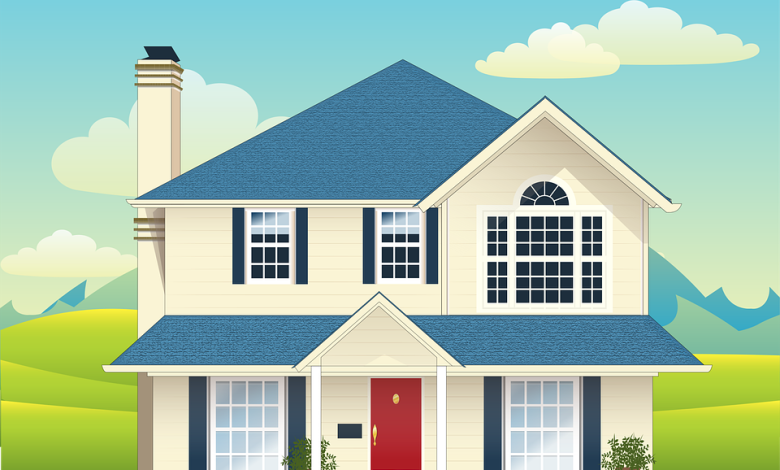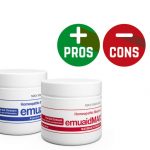The Pros and Cons Of Structured Sober Living

What is the meaning of structured sober living?
Structured sober living refers to a supportive living environment designed to assist individuals in maintaining sobriety and transitioning from a substance abuse treatment program to independent living. It typically provides a structured and accountable setting for people in recovery from addiction, offering a combination of guidance, supervision, and peer support.
The primary goal of structured sober living is to create a stable and substance-free living environment that promotes personal growth, relapse prevention, and the development of essential life skills. Residents in structured sober living homes or facilities adhere to a set of rules and expectations, such as maintaining sobriety, attending support meetings, participating in counseling or therapy, and contributing to household responsibilities.
These living arrangements often have staff members or house managers who enforce the rules, provide guidance, and oversee the day-to-day operations. They may also offer various services and resources, such as drug testing, employment assistance, educational programs, and referrals to community support networks.
Structured sober living plays a vital role in supporting individuals’ recovery by providing a stable and substance-free environment, fostering accountability and responsibility, promoting healthy coping strategies, and encouraging the development of a strong sober support network. It aims to bridge the gap between intensive addiction treatment and independent living, helping individuals reintegrate into society while maintaining their commitment to sobriety.
Difference Between Structured Sober Living and Normal Sober Living Homes?
The main difference between structured sober living and normal sober living homes lies in the level of structure and support provided to residents.
1. Level of Structure: Structured sober living homes typically have a higher level of structure compared to normal sober living homes. They have clearly defined rules and expectations that residents must follow, including curfews, mandatory attendance at support meetings, participation in counseling or therapy, and adherence to house guidelines. This structure helps residents establish routines, develop healthy habits, and maintain accountability.
Normal sober living homes, on the other hand, may have fewer rules and a more relaxed structure. While residents are still expected to maintain their sobriety, there may be less supervision and fewer mandatory activities. Normal sober living homes often provide a more independent living environment, allowing residents to have greater freedom and responsibility for their recovery.
2. Support and Accountability: Structured sober living homes typically offer more support and accountability measures. They often have staff members or house managers who oversee the operations, enforce the rules, and provide guidance and support to residents. Regular drug testing may be conducted to ensure compliance with sobriety requirements. The focus is on creating a highly supportive environment to help residents stay on track with their recovery.
Normal sober living homes may have less formal support and accountability structures. While there may be staff members available, the level of oversight and support may be less intensive. Residents are generally expected to take greater personal responsibility for their recovery, although they can still benefit from peer support and a sober living community.
3. Duration of Stay: Structured sober living homes often have a recommended minimum length of stay, typically ranging from a few months to a year or more. This extended duration allows residents to solidify their recovery, develop necessary life skills, and establish a foundation for long-term sobriety.
Normal sober living homes may be more flexible in terms of duration. Residents can stay for shorter or longer periods based on their individual needs and goals. Some individuals may use normal sober living homes as a stepping stone between intensive treatment and independent living, staying for a few weeks or months to transition smoothly.
It’s important to note that the specific characteristics and services offered can vary among different sober living homes, whether structured or normal. It’s advisable to inquire about the specific features and requirements of a particular sober living home to determine the best fit for individual recovery needs.
Advantages of Structured Sober Living Over Normal Sober Living Homes
Structured sober living homes offer several advantages over normal sober living homes:
1. Increased Accountability: Structured sober living homes provide a higher level of accountability. Residents are required to follow specific rules and guidelines, attend support meetings, participate in therapy or counseling, and contribute to household responsibilities. This accountability helps individuals stay focused on their recovery and avoid relapse.
2. Structured Routine: Structured sober living homes establish a daily routine that includes various activities and responsibilities. This structure helps residents develop healthy habits, establish a sense of stability, and fill their time with productive and recovery-oriented tasks. Having a structured routine can be particularly beneficial for individuals who may struggle with creating a structure on their own.
3. Supportive Environment: Structured sober living homes often have staff members or house managers who provide guidance, support, and supervision to residents. These professionals are trained to assist individuals in their recovery journey, offer resources, and provide a supportive presence. Peer support is also emphasized in structured sober living, as residents can connect with others who are going through similar challenges.
4. Relapse Prevention: With a higher level of structure and accountability, structured sober living homes offer a more focused approach to relapse prevention. The rules and expectations, combined with support services, help residents develop healthy coping mechanisms, practice relapse prevention strategies, and learn essential life skills necessary for maintaining long-term sobriety.
5. Extended Stay: Structured sober living homes often recommend a minimum length of stay, usually several months to a year. This extended duration allows residents to immerse themselves in a recovery-focused environment, build a strong foundation for their sobriety, and address any underlying issues that may have contributed to their addiction. The longer stay in a structured sober living home increases the chances of sustained recovery upon transitioning to independent living.
6. Resources and Services: Structured sober living homes often offer additional resources and services to support residents’ recovery. These may include drug testing, employment assistance, educational programs, life skills training, counseling or therapy sessions, and connections to community support networks. The availability of such resources can greatly enhance the recovery process and provide residents with the tools they need to succeed in sobriety.
While normal sober living homes can also be beneficial, structured sober living homes offer a higher level of support, structure, and accountability, making them advantageous for individuals who require additional assistance and a more intensive recovery environment.
Disadvantages of Structured Sober Living Over Normal Sober Living Homes
Structured sober living can provide a supportive environment for individuals recovering from substance abuse or addiction. While they have their benefits, there are also some potential disadvantages associated with structured sober living. Here are a few:
1. Lack of privacy: Living in a structured sober living environment typically means sharing living space with other residents. This lack of privacy can be challenging for individuals who value solitude or need personal space. It may be difficult to find moments of peace and quiet or engage in personal activities without interruptions.
2. Limited autonomy: Structured sober living homes often have rules and regulations that residents must adhere to, such as curfews, mandatory attendance at support group meetings, or restrictions on visitors. While these rules are in place to support recovery, they can also limit individual autonomy and the freedom to make independent decisions about one’s daily routine.
3. Strain on finances: Depending on the location and amenities provided, structured sober living homes can be expensive. Residents are typically responsible for covering the costs of living expenses, which may include rent, utilities, food, and program fees. For individuals with limited financial resources, the financial burden can be a significant disadvantage.
4. Potential for a disruptive living environment: While structured sober living homes aim to create a supportive and stable environment, the dynamics among residents can vary. Living with individuals at different stages of recovery can introduce challenges, such as conflicts, relapse triggers, or negative influences. It’s crucial to choose a reputable and well-managed sober living home to minimize these risks.
5. Limited duration of stay: Many structured sober living programs have a maximum duration for residents. Once a person reaches the end of their allotted time, they must transition to independent living. This time constraint can add pressure to the recovery process and may lead to concerns about relapse or a lack of readiness to live independently.
6. Potential for a lack of professional support: While structured sober living homes often provide a supportive environment, they may not offer the same level of professional support as an inpatient rehab or outpatient treatment program. It’s essential to consider whether additional therapy or counseling may be necessary to address specific needs.
It’s important to note that the advantages and disadvantages of structured sober living can vary depending on the individual’s circumstances, the specific facility, and their personal preferences and needs. It’s advisable to thoroughly research and visit potential sober living homes before making a decision.





